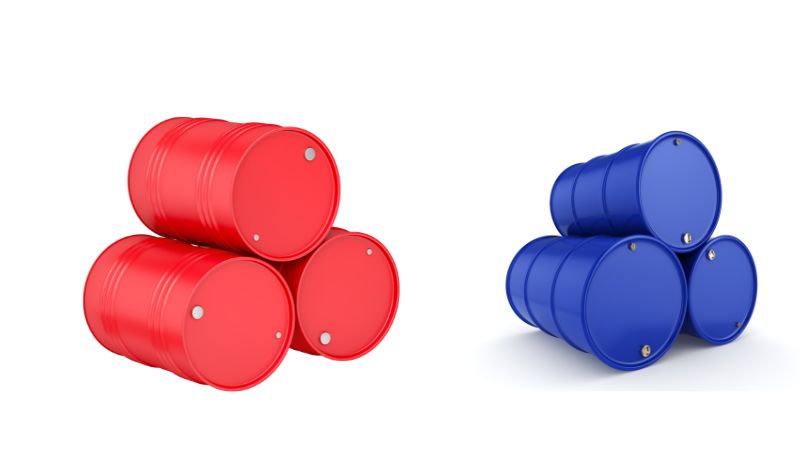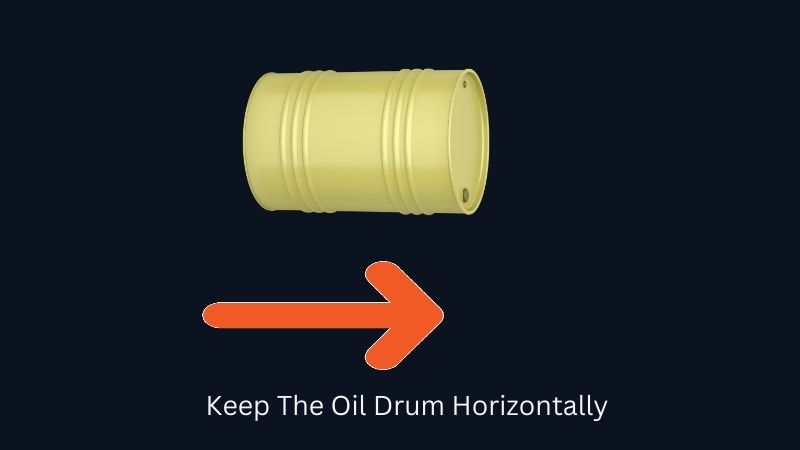Do you know how long your engine oil lasts before it becomes less effective or even harmful to your car’s engine?
The shelf life of engine oil is an essential factor in ensuring the longevity and smooth operation of your car. Over time, oil can degrade, lose its lubricating properties, and become contaminated with dirt and debris, leading to potential engine damage and expensive repairs.
To avoid these risks and maximize the performance and lifespan of your vehicle, it’s crucial to understand the shelf life of your engine oil and follow manufacturer recommendations on oil change intervals.
Take control of your car’s maintenance and keep your engine running smoothly by learning more about the shelf life of engine oil and scheduling regular oil changes with a trusted mechanic.

What is the Shelf Life of Engine Oil
Simply put, shelf life refers to the length of time an engine oil can be stored before it needs to be replaced or disposed of. This can depend on a variety of factors including environmental temperature, exposure to light and air, and base stock quality. Most importantly, it reflects the stability of the properties in the oil – including its anti-foam ability, detergency level, and viscosity index which are essential for proper lubrication. Generally, the recommended shelf life for oils and greases is five years when stored properly in the original sealed container. This applies to any oil, synthetic, or mineral. But good to use within 3 years. The quality of the oil also affects its shelf life, as premium oils contain better additives and detergents that resist oxidation, thermal breakdown, and sludge formation. Cheap oils may save you money upfront, but they can cost you more in the long run, as they may not last as long and can cause engine damage or wear.
Check: Motor oil brands to avoid
The storage conditions also play a crucial role in preserving the oil’s shelf life. Ideally, the oil should be stored in a cool, dry, and dark place, away from direct sunlight, moisture, and contaminants. Exposure to heat, light, or air can accelerate the oil’s deterioration and reduce its lubricating and cleaning properties.
The Importance of Knowing the Shelf Life of Engine Oil
Do you know how long your engine oil will last on the shelf? It’s an important question to ask because, just like food, oil has an expiration date. Understanding the shelf life of synthetic motor oil can help you make sure that you’re using quality oil and maintaining your engine in tip-top shape, no matter the circumstances.
When it comes to motor oil, “shelf life” refers to its storage life—or how long the oil can be stored before its performance is affected. Engine oils are composed of a combination of chemicals and base oil that can oxidize or corrode over time. The longer your engine oil sits on a shelf, the more likely it is to experience a change in its chemical composition, leading to decreased performance and efficiency in your car.
Knowing your engine oil expiry date is also important because it will give you an idea as to how fresh it is when you buy it and if necessary, how soon you might need to replace it. Most manufacturers offer a recommendation on what they consider a reasonable shelf life for their products; however, it’s best to check with your vehicle’s manual for specific recommendations about storage and frequency of replacement for maximum engine efficiency.
How to Tell When Engine Oil Has Gone Bad
When it comes to engine oil, knowing when it has gone bad is as important as how long it can be stored. The good news is that there are a few easy ways to tell when your engine oil has passed its shelf life.
Smell
The first method, and the most obvious for a lot of folks, is by smell. Engine oil usually has a strong, distinct odor all on its own—it’s kind of like a mix between paint thinner and gasoline. If you open the bottle and begin to notice a strong ammonia scent–or worse, an acrid burning smell–you’ll know that the engine oil has gone bad.
Color and Texture
Another way to tell if your engine oil has gone bad is by looking at it closely. Bad engine oil will not have the color or texture of fresh engine oil. Usually, you can easily tell the difference between fresh and old oil just by looking at it—old oil will be much thicker and darker than new.
Feel
Lastly, you can also tell if your engine oil has gone bad by feeling it in your hands. Fresh engine oil will feel light and slippery when rubbed between two fingers, whereas old engine oil will feel heavy and maybe even a little gritty due to impurities building up over time. Touching the liquid with skin contact can also alert you to temperature changes which may indicate bacterial growth.
Factors That Affect Shelf Life of Engine Oil
Engine oil is a lubricant that helps ensure that the moving parts in your engine run without damaging each other, so the last thing you want is for it to have gone bad. As with all other liquids, engine oil has a shelf life. One of the key factors that can impact this is the type of additive package used during production. Let’s discuss:
Different Additive Packages
Different additives affect how long engine oil can keep for, and what it can do. Zinc-based additive packages are most common and tend to endure more extreme temperatures, but also break down more quickly and don’t perform as well under higher pressure than other additives – like those found in synthetic oils.
Storage Conditions
The storage condition is another fact that affects the oil’s shelf life. Ideally, the oil should be stored in a cool, dry, and dark place, away from direct sunlight, moisture, and contaminants. Exposure to heat, light, or air can accelerate the oil’s deterioration and reduce its lubricating and cleaning properties.
Weather Conditions
The weather is another factor to consider – extreme temperatures or high levels of humidity can affect how long motor oil retains its quality. When storing motor oil make sure it’s in a cool and dry place, away from direct sunlight and any cold drafts that may cause condensation within containers.

Ways to Extend Shelf Life of Engine Oil
You already know that engine oil has a limited shelf life and needs to be used up by a certain date, or it will no longer be effective. If you want to extend the life of your engine oil, here are some things you can do:
Storing position and temperature
The most important thing is to store your oil in the correct position, especially for the drum pack. That is, if you put the drum in a vertical position then it will give better shelf life. Also storing temperature is an important fact! Cool temperatures are best for better shelf life, as heat can cause it to break down faster. Be sure to store your oil in a garage or basement where it will be out of direct sunlight.
Keep Containers Sealed
Make sure the containers are always closed when not in use and keep them away from any moisture that could cause the containers to rust. This will keep any dirt and debris out of the containers which can also shorten their shelf life.
Check Expiry Dates Regularly
Be sure to check the expiry date on each container of engine oil regularly, so you don’t end up with a bottle that is past its prime and needs to be thrown away. Doing this regularly will help ensure that you always have good quality engine oil available when you need it.
Use Appropriate Containers
Be sure to use appropriate containers for storing your engine oil. Plastic containers are best since they won’t degrade like metal, and they won’t corrode as glass bottles can sometimes do.
Engine oil- Shelf life Vs Service life
Engine oil is an essential, yet often overlooked, component of any functioning motor vehicle. Its primary purpose is to lubricate the many moving parts within the engine and reduce friction, helping to ensure that the motor runs smoothly, efficiently, and without issue. While engine oil is designed to last for a long time, it does have a limited lifespan. This lifespan can be divided into two categories: service life and shelf life.
Service life is the amount of time that oil can be used in your engine before it needs to be changed. This is usually indicated by the manufacturer’s recommended oil change interval and can vary depending on the type of oil and the driving conditions. Generally, service life is between 3,000 and 7,500 miles, but this can sometimes be higher or lower depending on the car and the oil used.
On the other hand, Shelf life is the amount of time that oil can be stored and remain usable. This is determined by the oil’s resistance to deterioration from exposure to heat, light, and atmospheric conditions. The shelf life of engine oil can range from 36 to 60 months depending on the type of oil and how it is stored. It is important to note that the shelf life of the oil is independent of its service life; even if an oil is still within its shelf life, it may need to be changed sooner due to its service life being exceeded.
FAQs
Q. Do engine oils expire?
Yes, gear oils can expire. Over time, engine oil or gear oil can deteriorate and lose its effectiveness, which can lead to engine wear and damage. The shelf life of engine oil depends on several factors, including the oil type, quality, storage conditions, usage pattern, and environmental factors.
Q. How long does engine oil last open?
shelf life of motor oil once opened it can last up to 2-5 years. If not used within that period, it will begin to break down and lose its effectiveness.
Q. Does Gear Oil expire?
Unused or unopened laboratory tests suggest that synthetic gear oils do not expire. Unopened synthetic gear oils lack an expiration date because these products do not degrade over time like conventional oils. As long as they are stored properly, they are stable and effective for many years.
Q. Can I use 10-year-old motor oil?
Usually, most conventional oil brands have a shelf life of around 5 years. Synthetic oils and synthetic blend oils last around 7-8 years. If you can’t find the expiration date, make sure you use half-opened or unopened bottles of motor oil within 2-5 years of the manufacturing date.
Conclusion
In conclusion, it’s important to understand the shelf life of your car engine oil and to make sure you are replacing it regularly. Understanding the shelf life of engine oil can help keep your engine running at optimal performance and ensure you’re not overspending on oil that’s past its prime.
Your engine oil is the lifeblood of the engine and understanding your machine or car’s specific oil needs is essential to maintaining its performance and keeping it running at its best. If you’re not sure how long your oil will last, it’s a good idea to check with your local auto shop or mechanic to make sure you’re getting the best service and advice.

